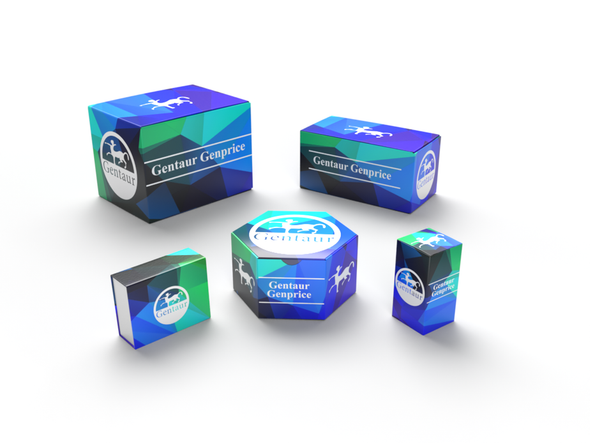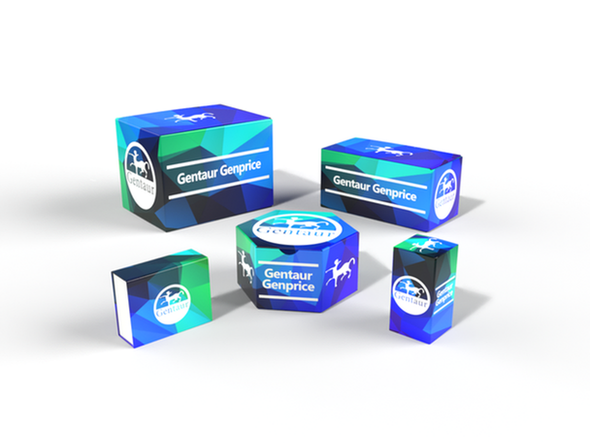Description
SCO1 Antibody | 4043 | Gentaur UK, US & Europe Distribution
Host: Rabbit
Reactivity: Human, Mouse, Rat
Homology: N/A
Immunogen: SCO1 antibody was raised against a 14 amino acid synthetic peptide from near the center of human SCO1.
The immunogen is located within amino acids 100 - 150 of SCO1.
Research Area: Homeostasis
Tested Application: E, WB, IHC-P, IF
Application: SCO1 antibody can be used for detection of SCO1 by Western blot at 0.5 - 1 μg/mL. Antibody can also be used for immunohistochemistry starting at 2.5 μg/mL. For immunofluorescence start at 20 μg/mL.
Antibody validated: Western Blot in human samples; Immunohistochemistry in human samples and Immunofluorescence in human samples. All other applications and species not yet tested.
Specificiy: N/A
Positive Control 1: Cat. No. 1303 - Human Brain Tissue Lysate
Positive Control 2: Cat. No. 10-301 - Human Brain Tissue Slide
Positive Control 3: N/A
Positive Control 4: N/A
Positive Control 5: N/A
Positive Control 6: N/A
Molecular Weight: N/A
Validation: N/A
Isoform: N/A
Purification: SCO1 Antibody is affinity chromatography purified via peptide column.
Clonality: Polyclonal
Clone: N/A
Isotype: IgG
Conjugate: Unconjugated
Physical State: Liquid
Buffer: SCO1 Antibody is supplied in PBS containing 0.02% sodium azide.
Concentration: 1 mg/mL
Storage Condition: SCO1 antibody can be stored at 4˚C for three months and -20˚C, stable for up to one year. As with all antibodies care should be taken to avoid repeated freeze thaw cycles. Antibodies should not be exposed to prolonged high temperatures.
Alternate Name: SCO1 Antibody: SCOD1, SCOD1, Protein SCO1 homolog, mitochondrial
User Note: Optimal dilutions for each application to be determined by the researcher.
BACKGROUND: SCO1 Antibody: Synthesis of cytochrome c oxidase 1 was initially identified in yeast as one of two cytochrome c oxidase (COX) assembly proteins that enable the assembly of cytochrome c holoenzyme, a complex that catalyzes the transfer of reducing equivalents from cytochrome c to molecular oxygen and pumps protons across the inner mitochondrial membrane. Like their yeast homologs, the function of both SCO1 and SCO2 are dependent on copper ion binding. Mutations in either gene can lead to cytochrome c oxidase respiratory chain defects, with a missense mutation in human SCO1 (P174L) associated with a fatal neonatal hepatopathy when the second allele is also non-functional, suggesting the pathology is due to loss of function. It has been suggested that this mutation alters the SCO1 affinity for the copper (I) ion, thus impairing the efficiency of copper transfer to the cytochrome c oxidase. At least two isoforms of SCO1 are known to exist and both are recognized by the SCO1 antibody. This SCO1 antibody has no cross-reactivity to SCO2.






